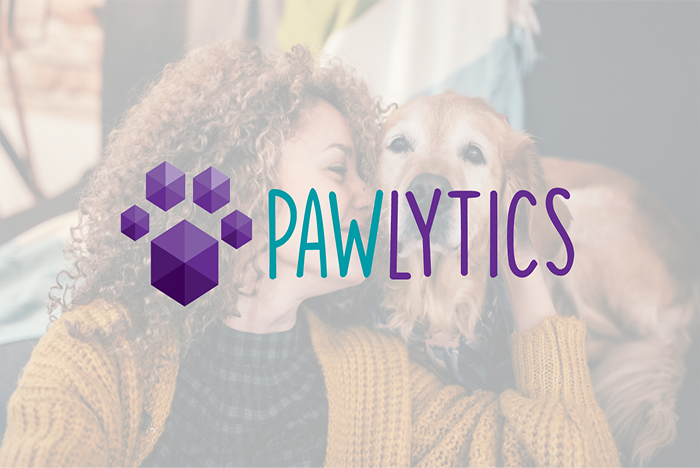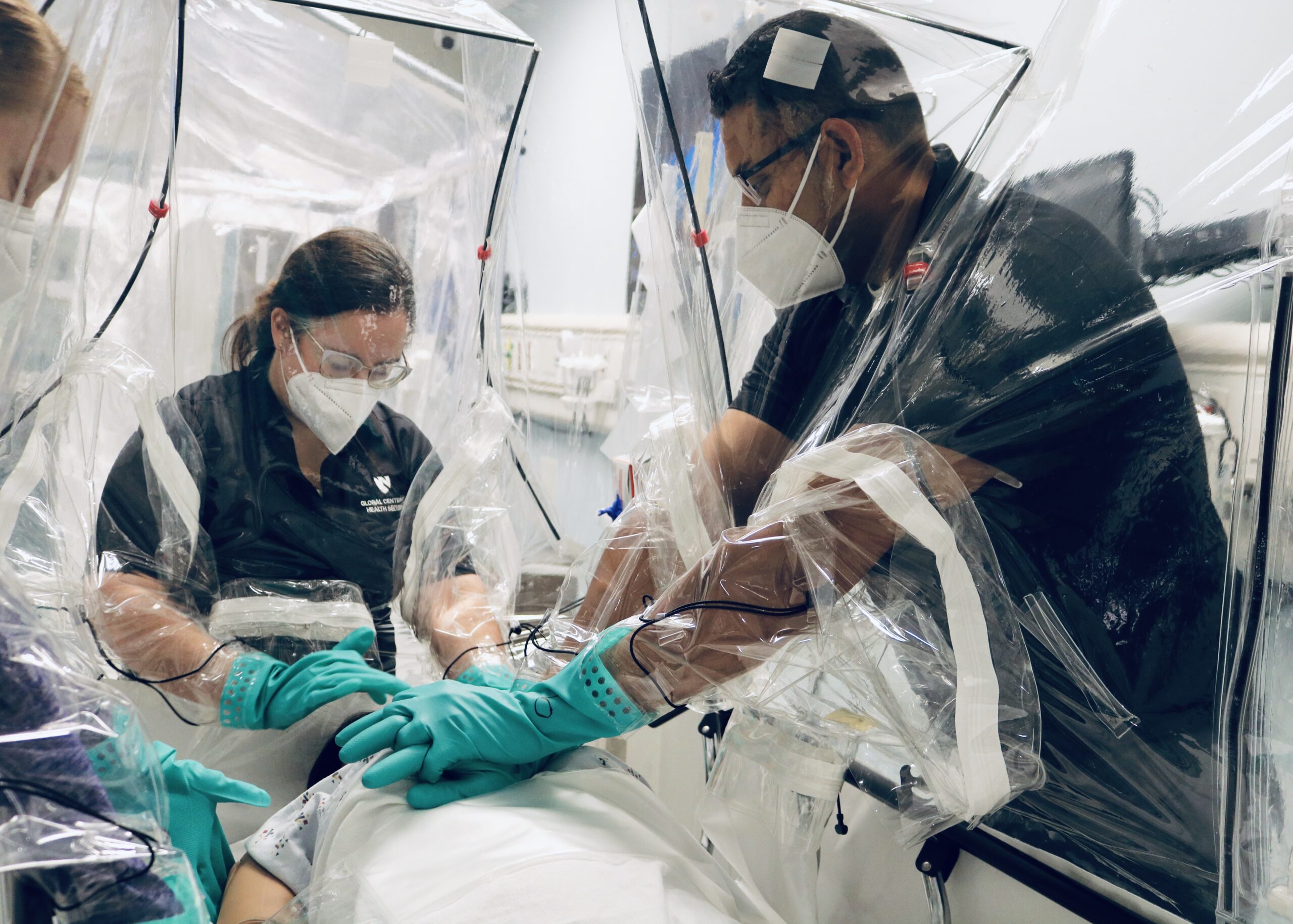Pawlytics founder Lizz Whitacre has four dogs, three cats, one ferret and two horses. The serial entrepreneur joked that the office of her Lincoln-based tech startup could double as a petting zoo.
“Everything I’ve ever done has been related to trying to save animals, while trying to figure out how to make a bunch of money doing it,” said Whitacre.
Whitacre has worked in the animal sheltering and pet-care industries since she was 13. “I wanted to make a living at it,” she said.
Looks like she’s succeeding.
Pawlytics works to unify the world’s pet health data via electronic health records tied to the unique ID microchips routinely planted in companion animals. Informed by that data, the company builds custom operations management software for the animal care industry and helps share vital pet health info between providers.
A benefit corporation with a social mission, Pawlytics serves smaller, foster-based rescue shelters that generally care for between 100 to 2,000 animals per year. They have obtained the data for over 15,000 animals from 300 shelters.
Whitacre and business partner Justin Collier are currently raising half a million dollars in pre-seed funding to help scale its software to meet the needs of larger clients that handle 20,000 to 60,000 pets per year. With some tweaks to the interface, Pawlytics will be able to capture the data from millions of pets annually, then use a unified database to create specialized software for veterinarians and shelters. According to a fundraising video on Pawlytics’ WeFunder profile, the company’s custom software will allow vets and veterinary pharmacists to keep better track of outcomes; insurance companies to improve risk assessment processes; retailers to gain better insights into target markets; and animal shelters to save more lives.
The goal: anyone with a stake in an animal’s health will be able to access the most accurate, up-to-date records on things like vaccinations, health conditions, pet insurance risk, caretaker data and companion history.
If things go well, soon enough Pawlytics software could be used by vets, boarding kennels, animal hospitals, training facilities and rescue shelters around the world. Maybe even Hollywood.
But success hasn’t come without Herculean effort and a healthy dose of learning from past failures.
While a student at UNL, Whitacre started Caffeline, a cat cafe in downtown Lincoln whose profits were supposed to help fund the development of a local no-kill animal shelter. When that project stumbled, she started Family Pet Project to ease the burden on no-kill animal shelters and help rescued animals go to good homes.
When Family Pet Project started to fail “in a very obvious way,” Whitacre says she picked up the phone as a last-ditch effort. Over nine months, she called 400 animal shelters, seeing if anyone would want to buy the product she was trying to sell.
Few were interested. But the shelters offered her plenty of candid, informal market research that would inspire the genesis of Pawlytics.
“These animal shelters started talking to me about their bigger problems,” Whitacre said. “They said, ‘If you’re a tech company, here’s what we need help solving.’ So I started listening. And that was really our first round of customer discovery.”
She found that the recordkeeping systems of animal care providers were often more than 30 years old and had never been updated.
So, she and her team started building the software that would make the job easier.
But there were problems. A first go at developing the program didn’t work out. This false step cost Pawlytics $12,000—nearly half of the first funds the company raised.
Cash was a recurring problem, coming in fits and starts.
“We’re trying to build damn-near enterprise-level software and we’ve done it in chunks of $10,000 to $30,000 at a time, without knowing when that next money was going to come,” Whitacre said.
Funding came in the form of grants from the Nebraska Department of Economic Development and Lincoln Partnership for Economic Development. Pawlytics also won $25,000 from the Inside/Outside startup competition, received support from the NMotion startup accelerator and secured donations from friends and family.
“We made it to market on only $135,000,” Whitacre said. “We were really happy with that, because our competitors spent $1 million to $2 million on their first versions eight years ago.”
How a Centralized Repository of Animal Data Reshapes the Pet and Caretaker Experience
A native of Minnesota, Whitacre uses an agricultural analogy to describe the benefits of her company, comparing the work of Pawlytics to that of a large cattle operation.
“Instead of having 30,000 cows that are all getting the same care, [imagine having] 30,000 cows that are all getting very individualized attention, care, caretakers, everything,” she said.
Her longtime experience working with animals taught her the importance of individualizing care. Just like every human, every animal is different.
And luckily for Pawlytics, Whitacre’s pet-care experience helps build instant rapport with potential clients.
“We get a lot of early adopters because I can talk the talk with them and they can feel we’re building something they actually need,” she said.
As for this current round of pre-seed investment, there’s already been quite a bit of momentum and support for Pawlytics. Whitacre said the company has closed $125,000 already from CEAS Investments, a Florida-based investment firm that actively seeks to invest in tech startups in Nebraska. Pawlytics hopes to secure another $125,000 in institutional funding and $250,000 from their WeFunder campaign. To the latter, anyone with $100 or more can donate and own a piece of the pie.
Fostering the Tech Talent Pipeline
Pawlytics also helps fight brain drain. Of all 50 U.S. states, only 15 have an economy smaller than Nebraska’s, an Omaha World-Herald editorial noted in January. The same article cited a total of 11,000 Nebraskans had been lost to other states in the last three years due to the trend of workers leaving for larger cities.
But Pawlytics is bringing them back. The company’s chief customer officer, for instance, moved from Omaha to Denver a few years ago. When she heard about Pawlytics, she contacted the company to see if any jobs were available. Soon, the new CCO found herself moving back home from Denver.
“That’s something I really like to talk about too, that we’ve brought talent back to the Nebraska area,” Whitacre said.
If the momentum holds, maybe one day Pawlytics can start keeping talent in Nebraska, not just bringing it back.




